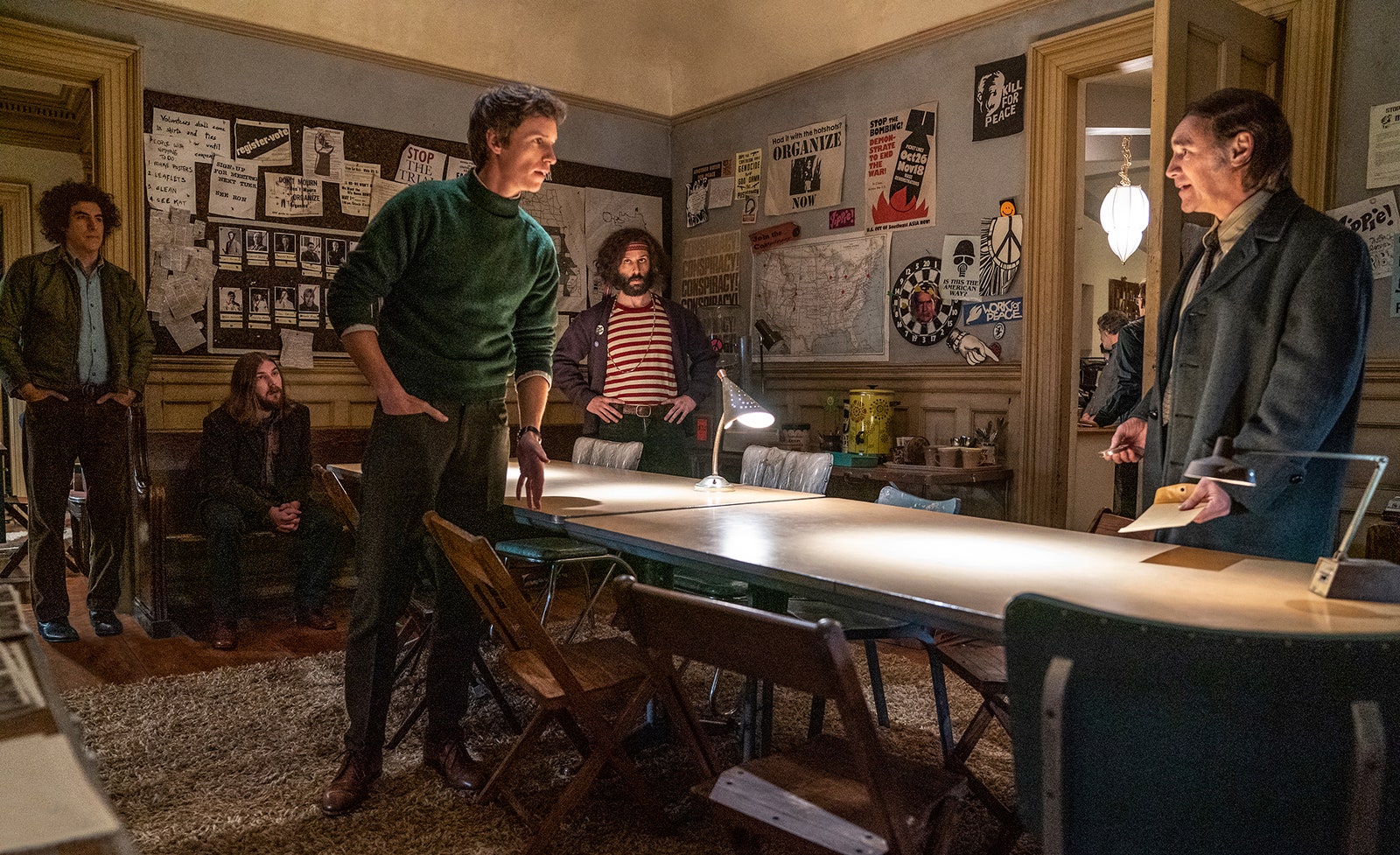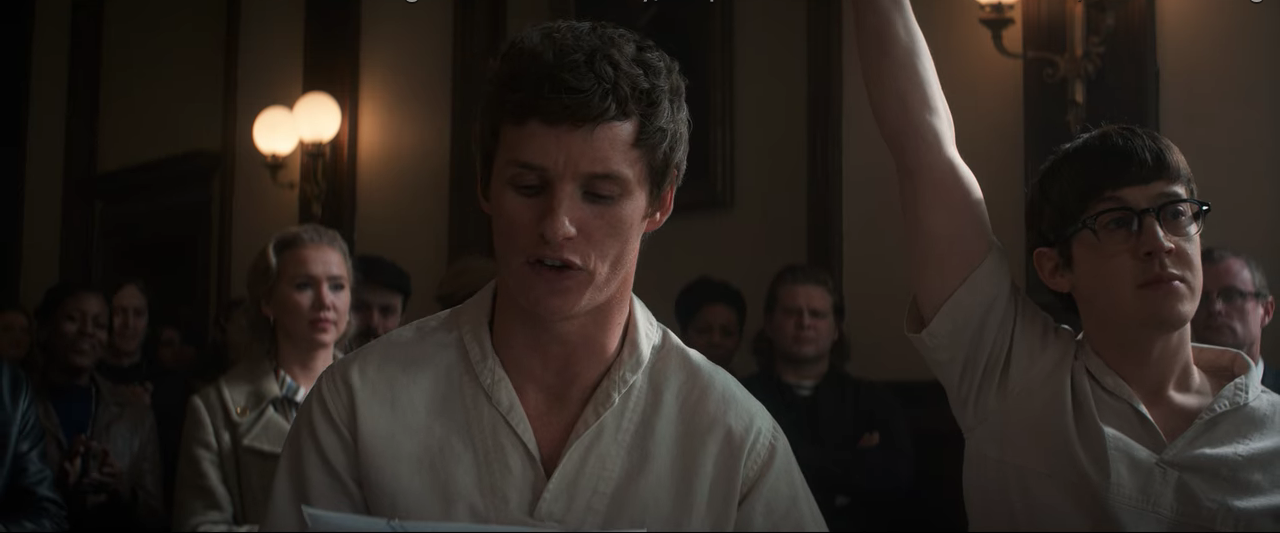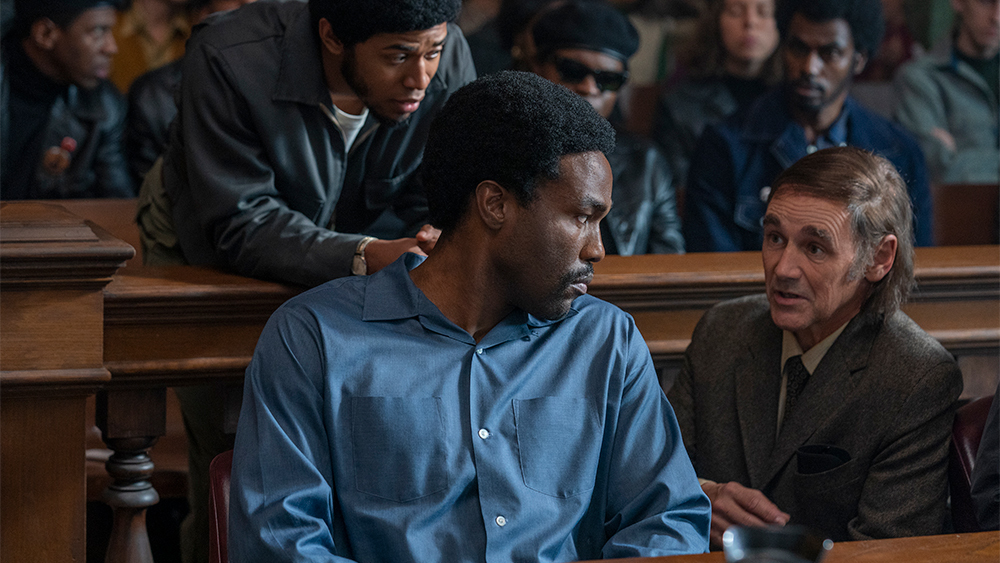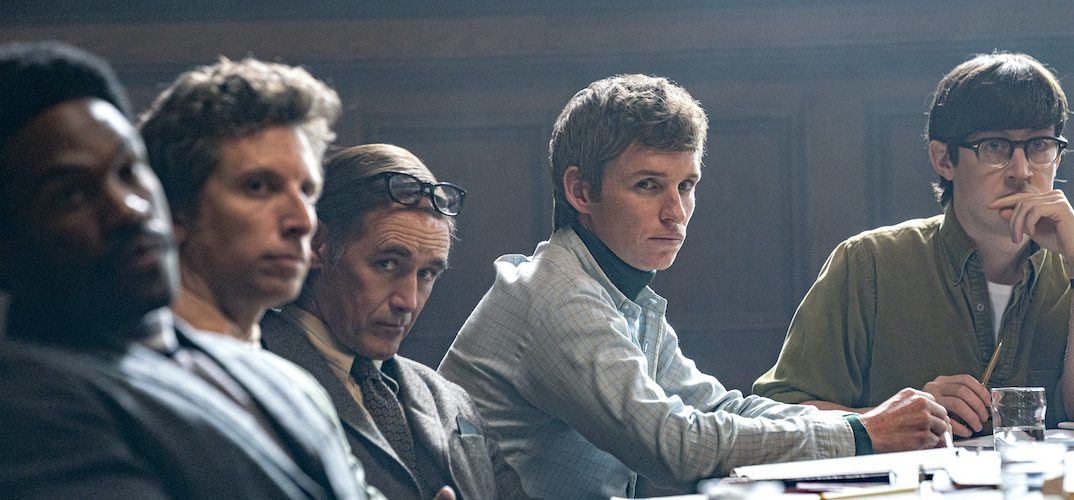‘The Trial of Chicago 7’ is a legal drama that tells the true story of a few men who were tried on charges of conspiracy to incite riots in Chicago during the 1968 National Democratic Convention. The turn of the decade was quite a tumultuous time in American history, and many changes were on the horizon, politically speaking. However, the movie is equally relevant to today’s climate. So, if you want to know more about the ending, this article is for you. SPOILERS AHEAD!
The Trial of Chicago 7 Plot Synopsis
The year is 1968. Almost 400,000 men have already been called to serve in the Vietnam War, but there are many Americans who don’t support this conflict. Enter the protagonists – Tom Hayden, Rennie Davis, Jerry Rubin, Abbie Hoffman, David Dellinger, Bobby Seale, Lee Weiner, and John Froines. All have vehemently protested America’s involvement in the war and are fighting for change and social justice. Add to this the Civil Rights Movement that is also evolving, and you will find that the country’s political climate is chaotic, to say the least.
These men, who are involved with different organizations with common goals, coordinate to protest in Chicago. It is because the National Democratic Convention is being held in the city, and the media will be there. The plan is to march to the location of the political gathering and make their voices heard. However, the Mayor, Richard Daley, has the Illinois National Guard and Chicago PD on standby to ensure that the convention goes smoothly.
When a riot breaks out, President Nixon’s Department of Justice seeks to indict the eight men and hold them responsible for springing the clash. However, the men argue that they came peacefully, and instead, it was the police who commenced the violence. The left-wing activists are put on trial, and the rest of the movie deals with the many obstacles they face during the hearings.
The Trial of Chicago 7 Ending
There is an acrimonious exchange between Abbie and Tom after David is arrested for punching a court official. It also turns out that William wants Tom to take the stand from the defense’s side. Previously, Tom said this about Abbie – “The last thing he wants is to end the war.” When asked to explain this, Tom says that if the Vietnam war ends, so will Abbie’s popularity, as the two go hand in hand. Then, Tom also states that when people will think about progressive politics in the future, they will associate it with Abbie’s hippie lifestyle and “idiot followers.’

It will not be looked upon as an agency for change. Consequently, many elections will be lost. Abbie points out that the issues should be Tom’s primary concern, not the elections. But the latter states that without a seat, it doesn’t matter what changes they’d want to bring about. Abbie also brings up that they have no money, which is why he makes so many appearances (almost like he’s maintaining PR for them in a way).
The tempers escalate when Abbie asks Tom if he was just a little bit happy that Robert Kennedy was shot because if he were still alive, then the riots would never have happened. This would mean that Tom would not have become such a popular face for the movement. Riled up, Tom grabs Abbie by the collar and states that he was one of the pallbearers at the funeral. Clearly, what Abbie said touches a vein, and the hippie points out that they’re all going to jail not because of what they’ve done but because of who they are.
Just then, William walks in with a tape that Foran’s office has entered into evidence where Tom is heard saying, “If blood is going to flow, let it flow all over the city.” During a mock cross-examination between Tom and William, it turns out that the former meant to say “our blood” instead of just “blood.” But sending Tom to testify, is no longer, a good move. So, Abbie is chosen to take the stand. The prosecutor, Richard Schultz, cross-examines Abbie about the events, and the indicted gives some rather honest answers about what it means to be a democratic country.
He also states that he has never been on trial for his thoughts until now. Later, Tom, Abbie, David, Jerry, and Rennie walk in for their sentencing. However, Judge Hoffman gives them one final chance to give a statement in court. On their behalves, Tom stands up and starts reading the names of almost 5000 soldiers that have died in the Vietnam War since the beginning of the trial. Although the judge tries to maintain order in his court, everyone claps for the defendants.

Even Richard Schultz stands up as a sign of respect for the fallen. The text sprawled across the screen tells us that the five men were found guilty for inciting the riots and were sentenced to 5 years in federal prison. But, this verdict was later reversed by the Seventh Circuit Court of Appeals. Although a new trial was ordered, it was never retried again. What happened to the men since the end of the case is also disclosed.
How Did The Real John Froines Feel About The Initial Verdict?
Although this legal battle is often called the trial of the Chicago 7, there were only five people who were convicted in actuality. Bobby Seale was given a mistrial midway through the case, and Lee Weiner and John Froines were acquitted on all counts. However, the latter stated, “I was very upset by that because I wanted to be with my friends, of course. And having five people found guilty and two people being acquitted—I cried at that.”
Did Tom Hayden Really Read 5000 Names in Court?
While Tom Hayden had done some rather impressive things in his lifetime, we could not find an account verifying if he actually had read the names of the fallen troops in court. In real life, he denounced the actions of the government, claiming that the actual perpetrator of the riots was none other than the Mayor because he was the one who refused to give out the permits in the first place. He also stated that they had no choice in the trial and that the people did what they had to do.
What Exactly Happened After Bobby Seale’s Mistrial?
The movie was quite spot on with the many challenges that Bobby Seale had to face during the trial. After all, he was only in Chicago for 4 hours and had nothing to do with the protests. However, he was tried with the left-wing activists. Given that due process was not being followed when it came to his legal representation, Bobby would often disrupt the actual hearings and even called the judge a “racist” and “bigot.”

Although Bobby’s case was eventually declared a mistrial, Judge Julius Hoffman found him guilty on 16 counts of contempt for the court. The Black Panther National Chairman was sentenced to 4 years in prison. But this was not the end. Judge Hoffman also wanted a new hearing next year to try Bobby on charges of conspiracy. But by that time, the Chicago 7 had been acquitted on the same charges. Besides, the U.S. Attorney, William J. Bauer, reportedly told the judge that it would be inappropriate to try the Black Panther for the charge alone. Hence, his case was dropped. In 1972, Bobby Seale was released from prison.
Were Members of The Police Force Charged?
Most of the media focused on the Chicago 7 as the trial unfolded. However, on the flip side, eight police officers were indicted by a federal grand jury on charges of violating the civil rights of demonstrators by using excessive force. Reportedly, the Chicago Police officers were eventually acquitted.
Read More: The True Story Behind The Trial of Chicago 7


You must be logged in to post a comment.